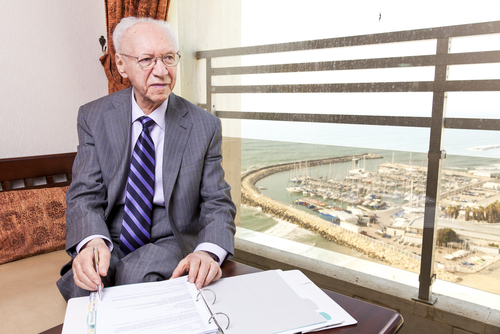Mortgages
Working until you drop: older generations retiring later

Good news for those who like their jobs; new government statistics reveal that we are working longer than ever.
The statistics show that the average age of exit from the workplace has increased from 63.2 years in 1997 to 65.1 today. For women, the rise is even greater, with the average woman leaving the workplace at 60.8 in 1997 and at 63.6 today.
The rates of employment for people aged 50 and over is also increasing. In 1984 just 55.8% of this age group were in work and this dropped to 4.9% for the over 65s. Today 71.2% of the 50-64 age bracket are in work, and 10% of the over 65s.
The research also showed that the employment rate gap between 50-64 year olds and 35-49 year olds is closing, suggesting employers may be throwing off some of their former prejudices about older workers.
Partly this is attributable to the Equality Act of 2010, which made it unlawful for companies to discriminate against employees or jobseekers based on age. However, the levels of older age employment have continued to rise steadily long after the legislation was introduced. Changing state pension age has also influenced the statistics. The rise in female working lives maps the rise in state pension age from 60 to its current level of 63 and nine months.
This will go some way to helping the current pensions crisis. The later people continue to work, the longer they have to build up a retirement pot and the less time that pot has to last.

Wellness and wellbeing holidays: Travel insurance is essential for your peace of mind
Out of the pandemic lockdowns, there’s a greater emphasis on wellbeing and wellness, with
Sponsored by Post Office
Tom Selby, senior analyst at AJ Bell, said: “Anyone who thinks retiring at 65 is a scary thought is in for a nasty shock. The rise in average retirement ages is only going to accelerate in the decades to come as the state pension age increases further and the number of people retiring with generous defined benefit entitlements falls away.
“We will also see more people working longer, either full-time or part-time, in order to supplement their retirement income. For some this won’t be a problem, but for those in more strenuous or physically demanding roles the thought of retiring later will be difficult to stomach. But the stark reality is that, if life expectancy keeps going up, many will be staring a retirement age of 70 or older square in the face.
“This isn’t inevitable, of course, and the more you can save into a pension early in your career the better chance you’ll have of stopping work at a time that suits you.”